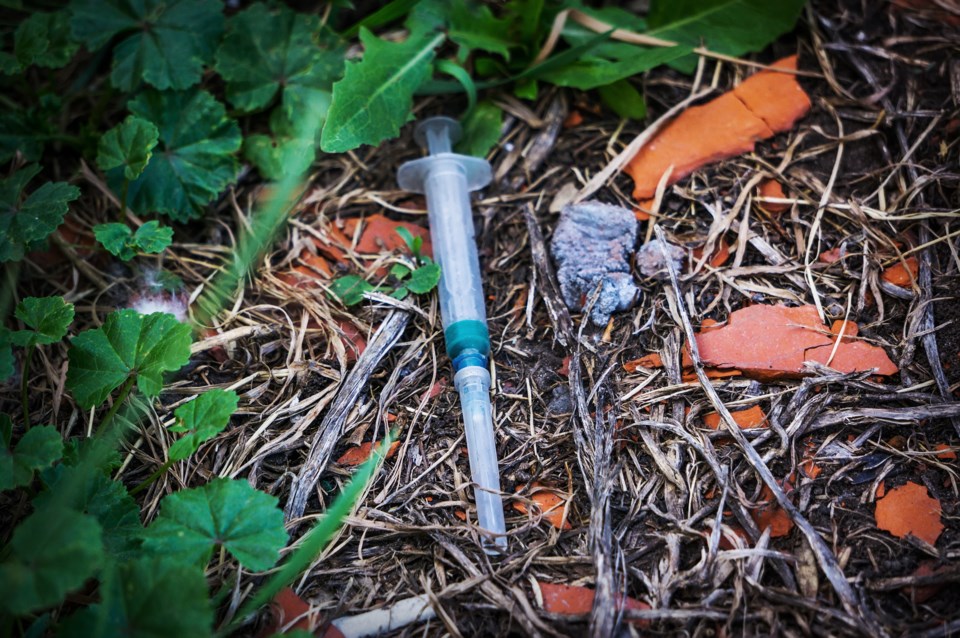Perhaps it was fitting that the “Ministry of Air” disappeared from B.C.’s political scene with barely a whiff this week. One moment it was there, another it was erased from the cabinet lineup as if it never existed.
Premier David Eby put to an end the ministry — officially titled the Ministry of Mental Health and Addictions — on Monday, eliminating a portfolio that critics say had done little to actually curb the toxic drug crisis or create a coherent addictions treatment system during its seven-year run.
It was Eby’s predecessor, John Horgan, who created the ministry in his first cabinet in July 2017. He trumpeted it as the first in Canada, and a sea change for how the provincial government would approach the complex issue.
“My government will have a minister who gets up every single day focused on solving this problem and saving people’s lives,” Horgan said at the time. “It’s not going to be on the side of someone’s desk.”
The first minister, New Westminster’s Judy Darcy, promised it would help create a “consistent, seamless system of mental health and addiction so that when people ask for help, they get treatment quickly.”
That never happened.
The core of the problem was always simple: The ministry never had any money or power. It couldn’t make addictions treatment policy within the health-care system, without approval from then health minister Adrian Dix. And it couldn’t create actual treatment beds, without money from Dix either.
The result was a confusing, bureaucratic mess, with two ministers (not always in alignment) plus a premier (also not always in alignment) trying to navigate complex issues like prescribing policy for opioid agonist therapy, treatment beds inside hospitals and the police response to an evolving decriminalization pilot.
The whole thing became mostly a public relations exercise, with a minister nominally in charge of one of the most complicated, life-altering issues affecting society today, lacking any real tools or funding to tackle it in any meaningful way.
Instead, the ministry would issue cut-and-paste statements every month or so when the coroner issued the latest toxic drug deaths, expressing regret and remorse for the loss of life.
In 2021, I dubbed it “the Ministry of Air” after then minister Sheila Malcolmson revealed to the legislature that the ministry’s entire $13 million budget went to the salaries and expenses of 83 full-time staff — with nothing actually going towards mental health or addictions, and no control over the $2.7 billion spent annually within the health budget in that area.
The nickname stuck.
But New Democrats persisted with the argument that it was better to at least have a point person for the issue on paper, than to be relegated inside the health ministry.
Eby played along with the idea as well during his first 22 months as premier, putting Jennifer Whiteside in the role. But after getting an earful in the election from voters mad about visible drug use in downtown cores, decriminalization, continued overdose deaths and overall street disorder — he switched course.
Gone is the argument that a dedicated minister brings importance to the file. Now, the NDP argue the opposite.
“It's about the challenge and the critical importance of delivering infrastructure related to mental health and addiction treatment centres, detox centres, the kind of infrastructure we need across the province through a ministry that was separate from the Ministry of Health,” said Eby.
“So in order to ensure that we're able to deliver in the toxic drug crisis, putting it back into the Ministry of Health.”
Eby downgraded the mental health and addictions file two steps to a parliamentary secretary position, which is not even a member of cabinet. Responsibility now lies, clearly, with new Health Minister Josie Osborne.
“It is time now to integrate and work together, bring this together and be able to take that more flexible approach,” said Osborne.
Better late than never. Though, more than 14,000 people have died of toxic drugs since the ministry was created.
When asked by reporters after his cabinet was sworn in whether the move was made due to public dissatisfaction with his government’s controversial drug policies over the years, including decriminalization and safe supply, Eby denied any correlation.
“No, not at all,” he said.
But he got around to admitting it later via a different question.
“There's no question … British Columbians sent us back to Victoria to do this work with the narrow majority,” said Eby.
“I think one of the issues, absolutely, was the toxic drug crisis and the impact on our streets, and I hope they see with this cabinet that we take that very seriously.
“We're going to continue to redouble our work to keep people safe from death due to overdose, and also to keep communities safe and ensure that people feel comfortable in their downtown cores.”
The Ministry of Air, dissolved into nothing. If only it had happened earlier.
Rob Shaw has spent more than 16 years covering B.C. politics, now reporting for CHEK News and writing for Glacier Media. He is the co-author of the national bestselling book A Matter of Confidence, host of the weekly podcast Political Capital, and a regular guest on CBC Radio.



